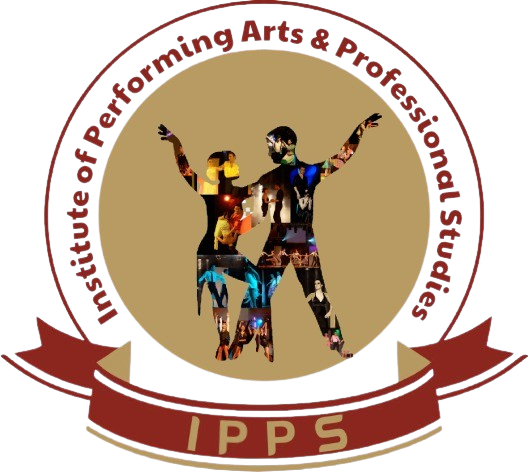Course Description:
This diploma program provides comprehensive training in public relations (PR) strategies and communication management, with a focus on the unique socio-cultural, economic, and political landscape of India. Students will develop practical skills and theoretical knowledge to effectively plan, implement, and evaluate PR campaigns, navigate media relations, manage crises, and build positive stakeholder relationships in diverse organizational contexts.
Course Objectives:
1. Understand the role and importance of public relations in the Indian context.
2. Develop skills in strategic PR planning, message development, and campaign execution.
3. Gain proficiency in media relations, including media pitching, press releases, and media monitoring.
4. Learn crisis communication strategies and techniques for managing reputation risks.
5. Explore the ethical and legal considerations in PR practice in India.
6. Analyze case studies and real-world examples to apply PR theories and concepts.
7. Develop communication and interpersonal skills essential for effective PR professionals.
Course Structure:
Introduction to Public Relations
1. Definition, scope, and functions of public relations
2. Historical development of PR in India
3. Role of PR in organizational communication and reputation management
PR Strategies and Campaign Planning
1. Strategic planning process in PR
2. Setting objectives, identifying target audiences, and developing key messages
3. Planning and executing PR campaigns in Indian contexts
Media Relations and Communication
1. Understanding the Indian media landscape
2. Techniques for media pitching, press releases, and media interviews
3. Media monitoring, analysis, and relationship building
Crisis Communication and Reputation Management
1. Crisis communication strategies and protocols
2. Managing reputation risks in the digital age
3. Case studies of crisis communication in Indian organizations
Corporate Social Responsibility (CSR) and PR
1. Role of PR in CSR initiatives
2. Building and communicating corporate social responsibility programs
3. Case studies of successful CSR campaigns in India
Digital PR and Social Media Management
1. Integration of digital platforms in PR campaigns
2. Social media strategy development and implementation
3. Monitoring, engagement, and crisis management on social media
Ethics and Legal Aspects of PR
1. Ethical principles and standards in PR practice
2. Legal regulations governing PR activities in India
3. Case studies of ethical dilemmas in PR practice
Professional Development and Career Skills
1. Networking and relationship building in the PR industry
2. Resume building, interview preparation, and career advancement strategies
3. Presentation and public speaking skills development
Assignment & Project:
Students will complete an assigned project that integrates the knowledge and skills gained throughout the program. They will get a project from Institute and go to the event for getting knowledge of how to handle the event. The project may involve developing a comprehensive PR campaign for a real or hypothetical client, addressing a specific communication challenge or opportunity in the Indian context.
Assignment Objectives:
1. To apply theoretical concepts of PR strategies and communication management in a real-world context.
2. To demonstrate creativity and innovation in developing a strategic PR campaign tailored to Indian audiences.
3. To address a pressing social issue or promote a social cause with potential for meaningful impact in India.
4. To analyze the socio-cultural context and stakeholder dynamics relevant to the chosen issue or cause.
5. To design and implement a coherent, integrated PR campaign plan with clear objectives and tactics.
Assignment Guidelines:
Issue Selection: Choose a social issue or cause of relevance to Indian society that aligns with the objectives of the assignment. Examples may include gender equality, environmental sustainability, mental health awareness, literacy promotion, or community development.
Research and Analysis:
1. Conduct research to understand the background, scope, and significance of the chosen social issue or cause in the Indian context.
2. Analyze the socio-cultural, economic, and political factors influencing the issue, as well as key stakeholders and their perspectives.
Campaign Strategy Development:
1. Define the objectives of your PR campaign, considering both awareness-raising and behavior change goals.
2. Identify target audiences and segment them based on demographics, psychographics, and communication preferences.
3. Develop key messages and narratives that resonate with your target audiences and align with the goals of your campaign.
Tactical Plan:
1. Outline specific PR tactics and activities to achieve your campaign objectives, such as media relations, social media engagement, events, partnerships, and influencer outreach.
2. Determine the timeline, budget, and resource allocation for each tactic, ensuring feasibility and effectiveness.
Implementation:
1. Execute your PR campaign plan, implementing the identified tactics and activities in a coordinated manner.
2. Monitor the progress of the campaign, track relevant metrics, and make adjustments as needed to optimize performance.
Evaluation:
1. Evaluate the effectiveness of your PR campaign based on predefined objectives and key performance indicators (KPIs).
2. Collect feedback from stakeholders and target audiences to assess the impact of your campaign on awareness, attitudes, and behaviors related to the chosen issue or cause.
Assessment Criteria:
1. Alignment of campaign objectives with social impact goals and Indian context.
2. Clarity and coherence of campaign strategy and tactical plan.
3. Creativity and innovation in message development and communication tactics.
4. Consideration of stakeholder perspectives and socio-cultural dynamics.
5. Effectiveness of evaluation plan in measuring campaign impact and success.
Submission Details:
Format: Written report or digital presentation (e.g., PowerPoint, Prezi).
Length: 2000-2500 words for written report; 15-20 slides for digital presentation.
Deadline: [Insert Deadline Here]
Submission Method: [Insert Submission Method Here]
